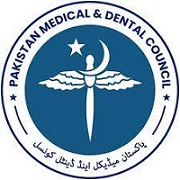ASSESSING THE EFFECTIVENESS OF TURMERIC IN THE MANAGEMENT OF DRY SOCKET
Abstract
Background:
The utilisation of plants and their extracts for wound management and treatment has great potential. Some herbs stimulate tissue healing and regeneration through various mechanisms. Turmeric, also known as Haldi in Urdu, is its active ingredient, contains curcumin, and has been demonstrated to exhibit antibacterial, antifungal, and anti-inflammatory properties. A dry socket represents the most frequent complication that may arise following a tooth extraction, and it causes discomfort. The primary aim of this study is to evaluate the effectiveness of turmeric in alleviating the symptoms of dry sockets.
Objective:
The objective of this study is to assess the effectiveness of turmeric in the management of dry sockets.
Materials and Methods:
This study was carried out at Multan Medical and Dental College, Pakistan, focusing on 50 individuals who were diagnosed with dry sockets in the Oral and Maxillofacial Surgery Department. In Group A, patients were treated with turmeric and mustard oil dressing, whereas Group B received an Alvogyl dressing.
Results:
Both groups experienced a noteworthy decrease in pain and inflammation. However, Group A exhibited a more rapid wound-healing process.
Conclusion:
Both turmeric and Alvogyl alleviate dry socket pain. However, further investigations are required to validate the dosing regimen of turmeric and evaluate its long-term safety and effectiveness.






